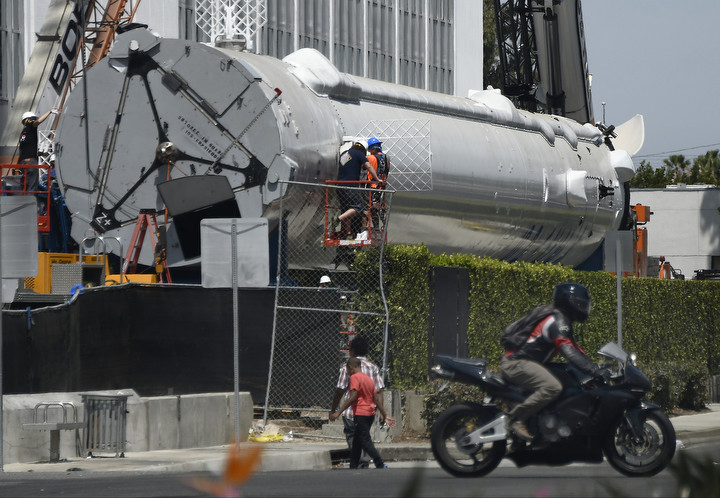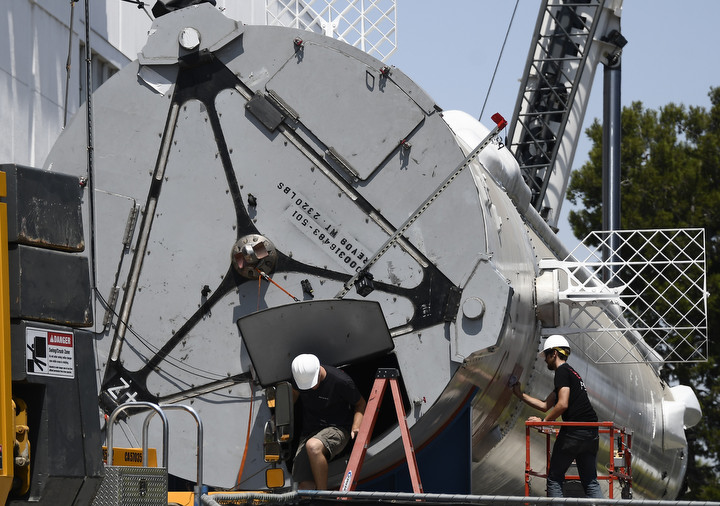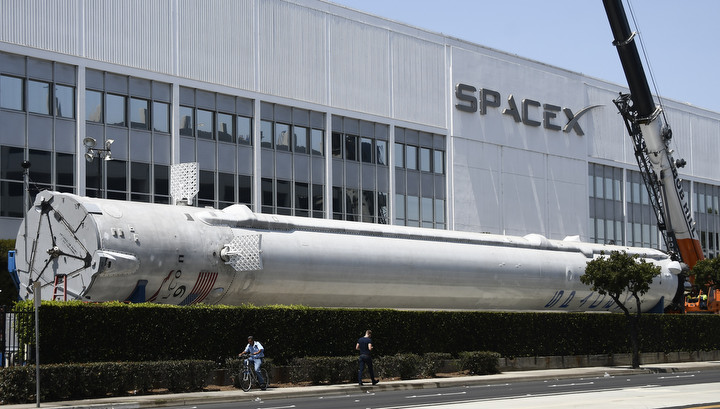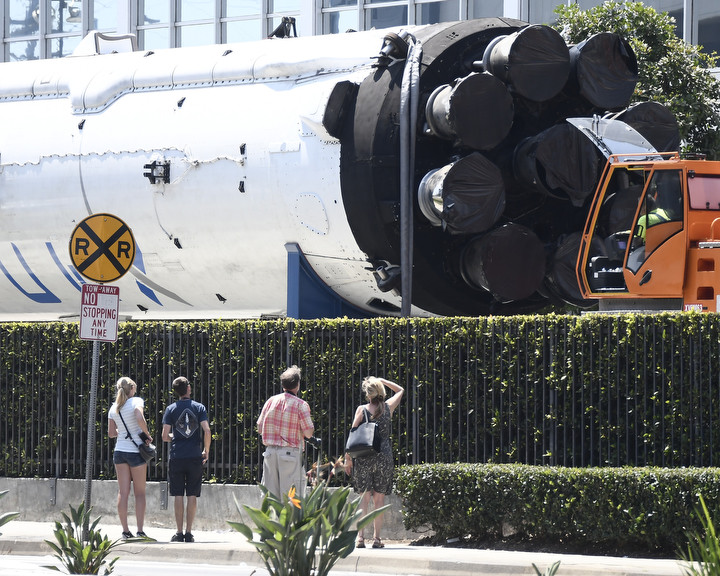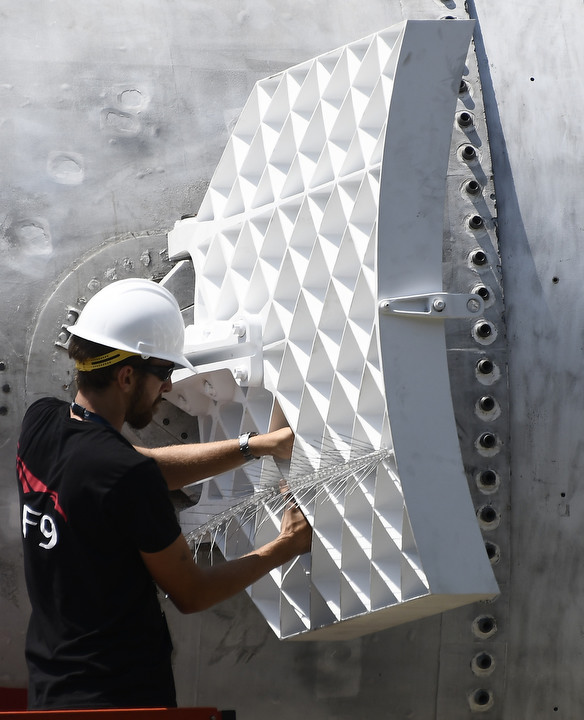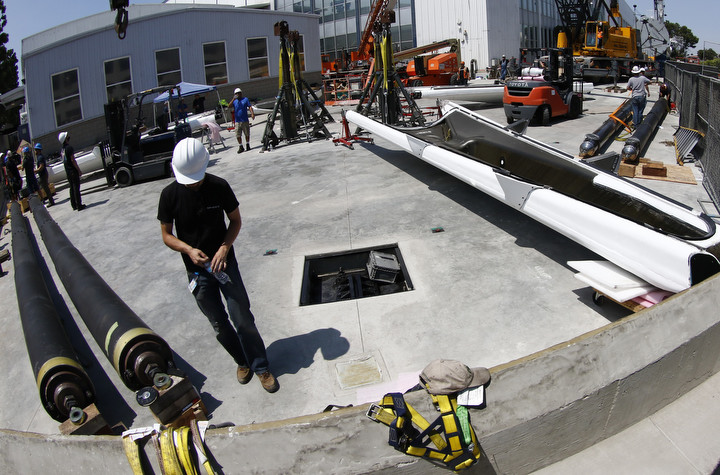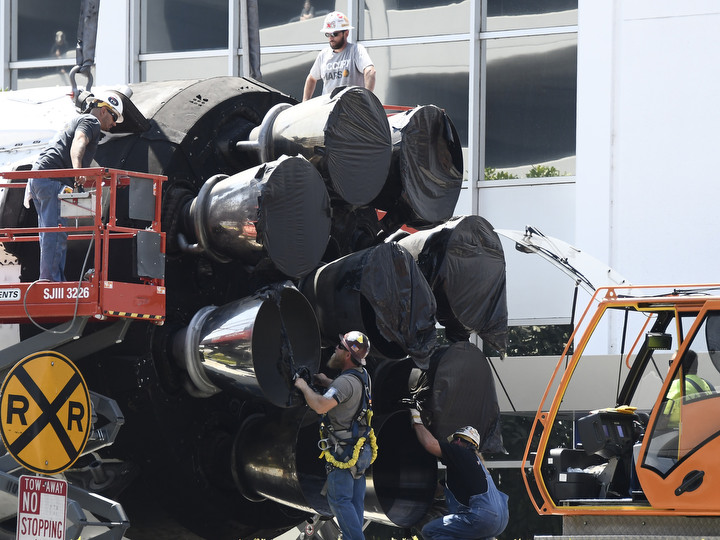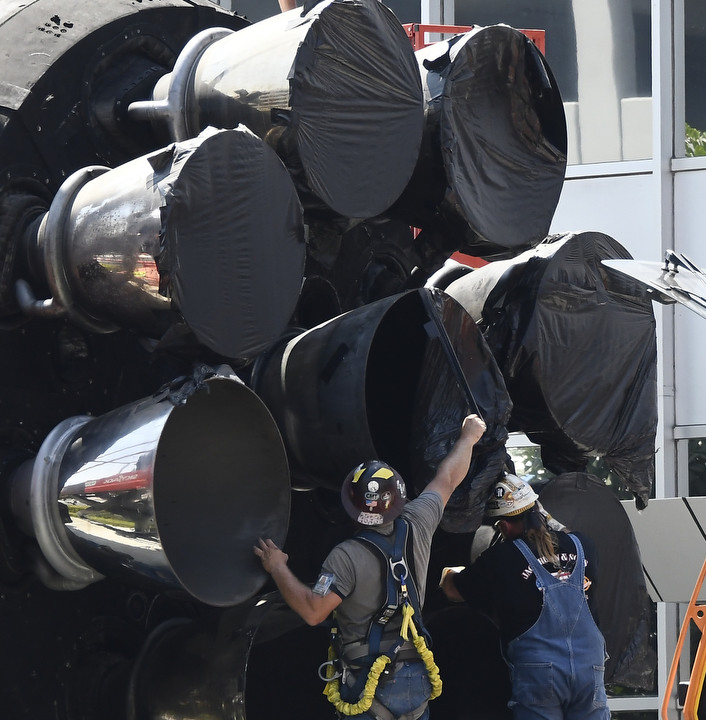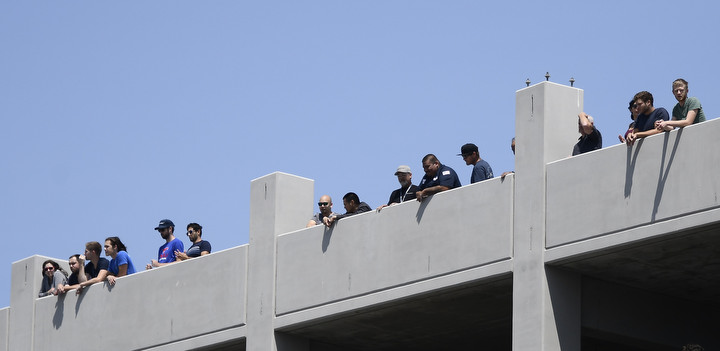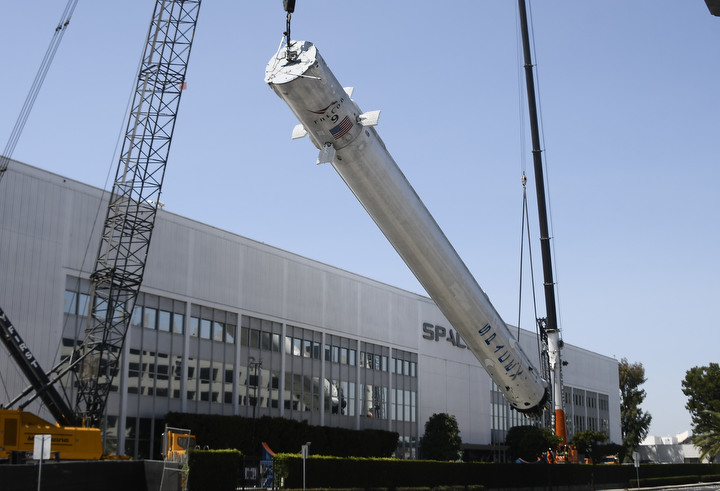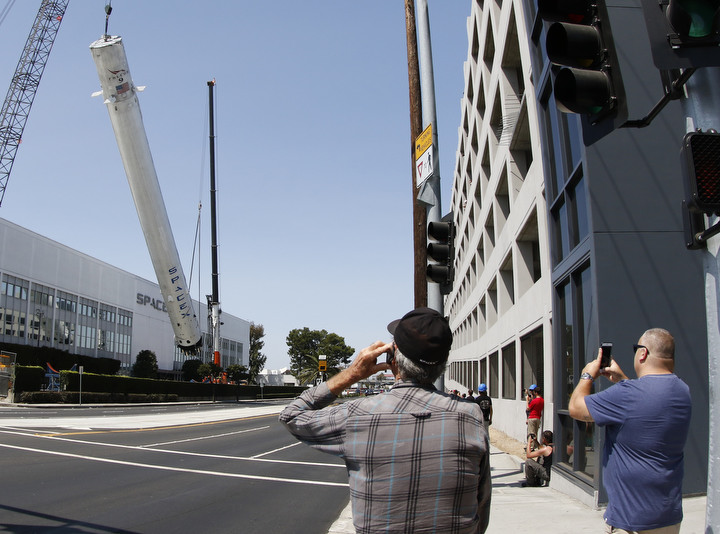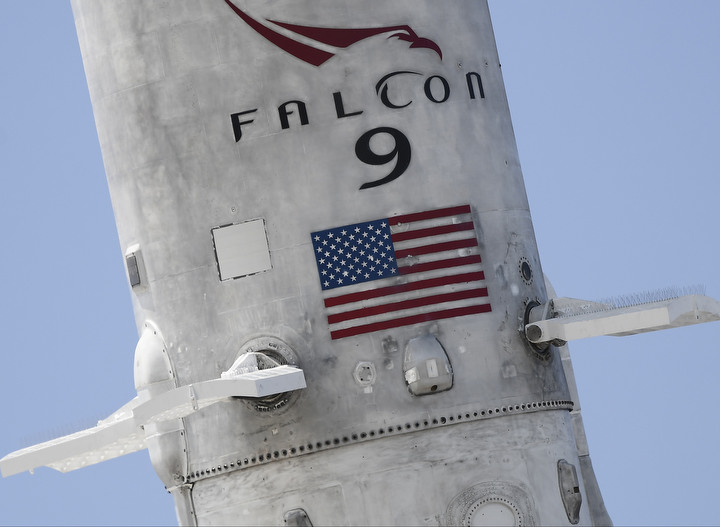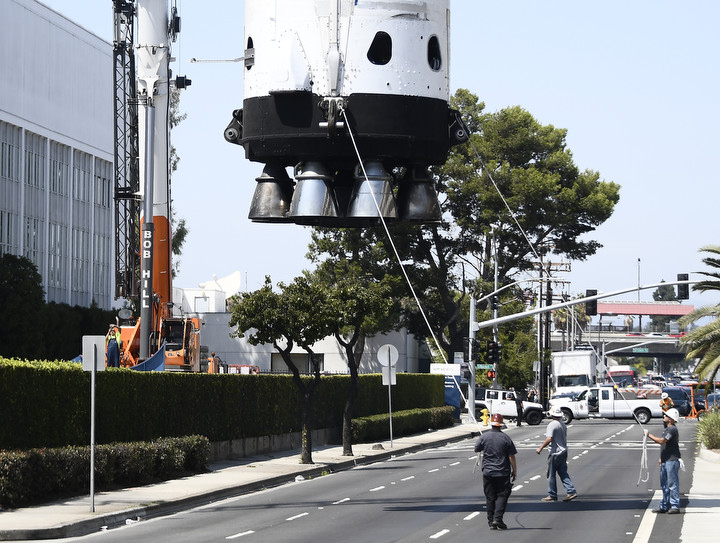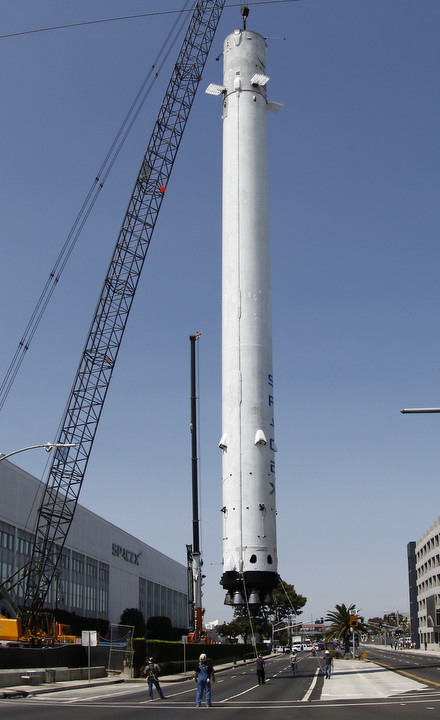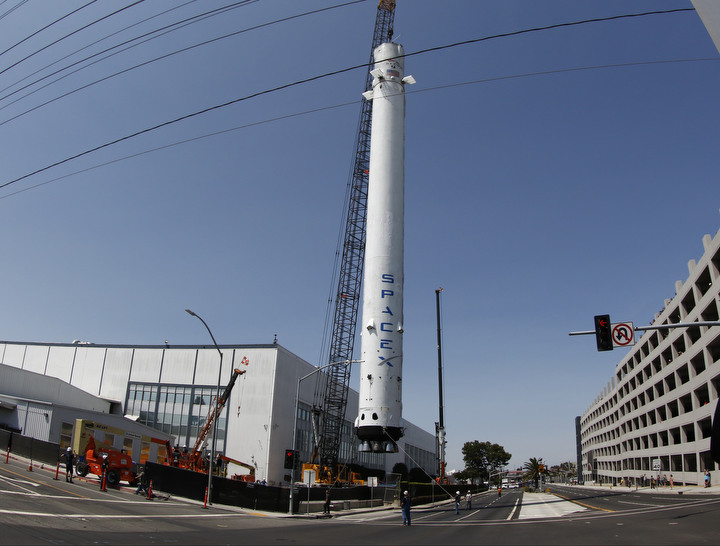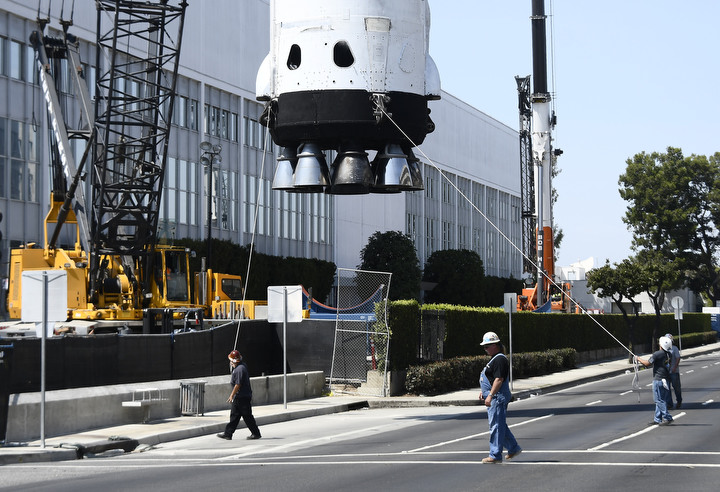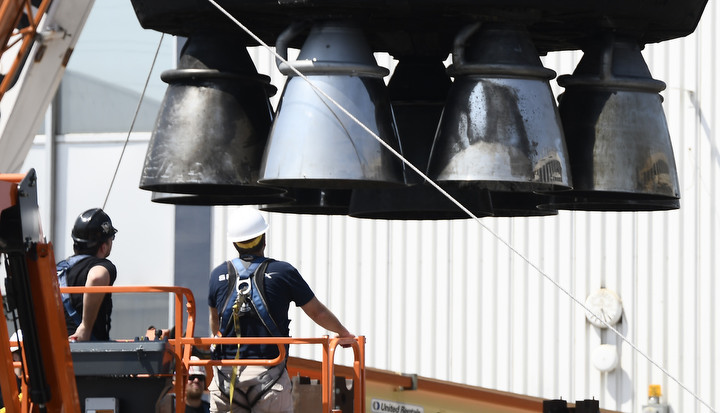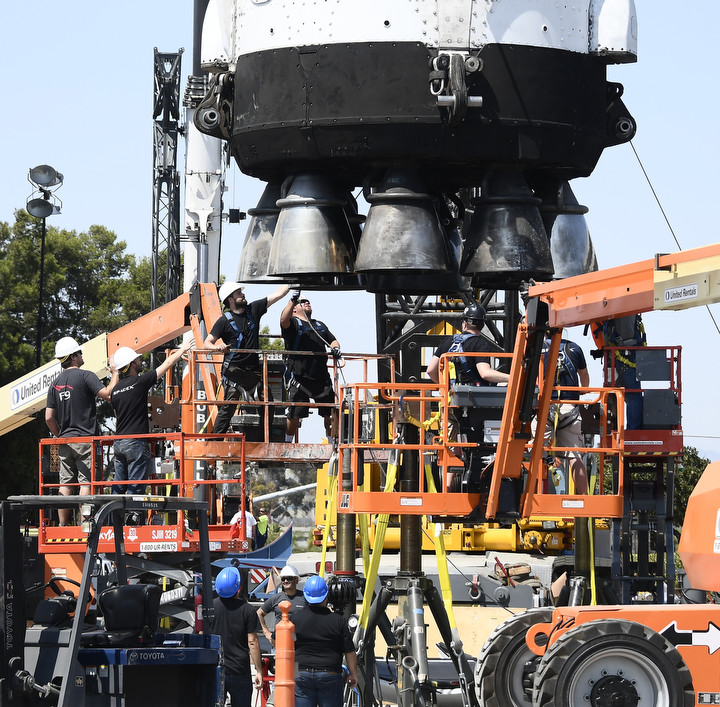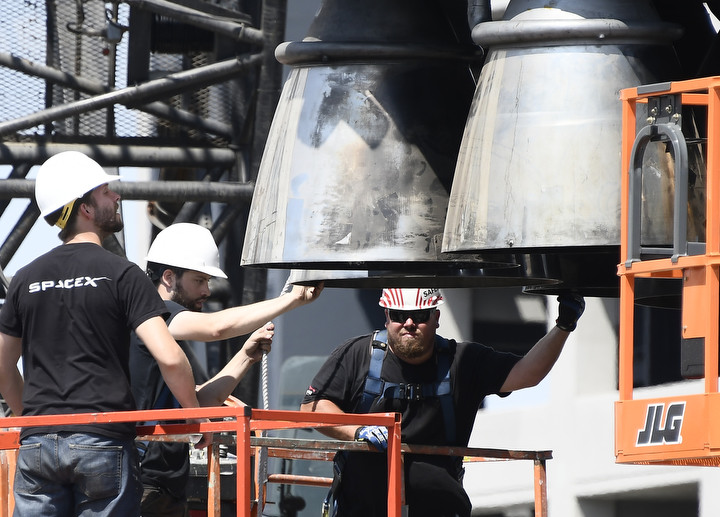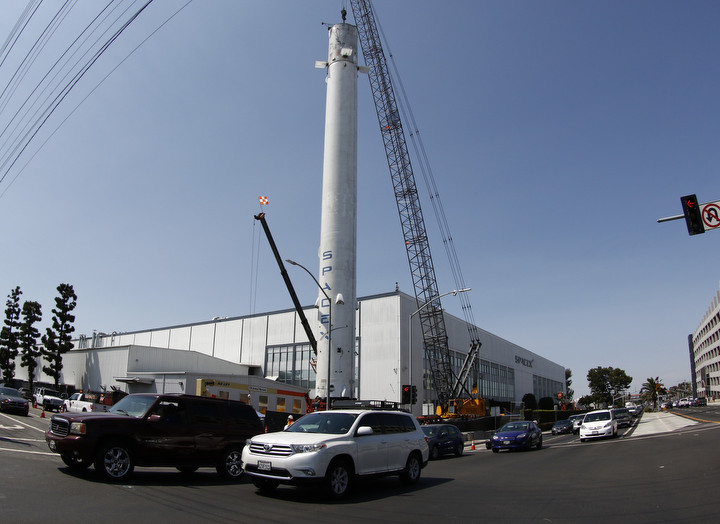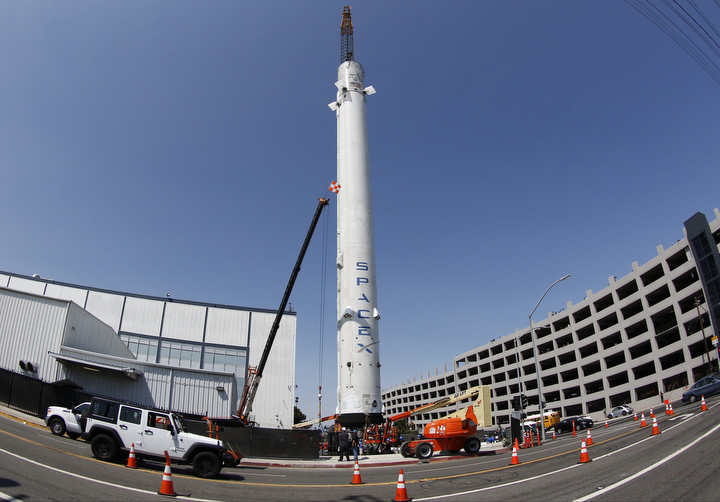.
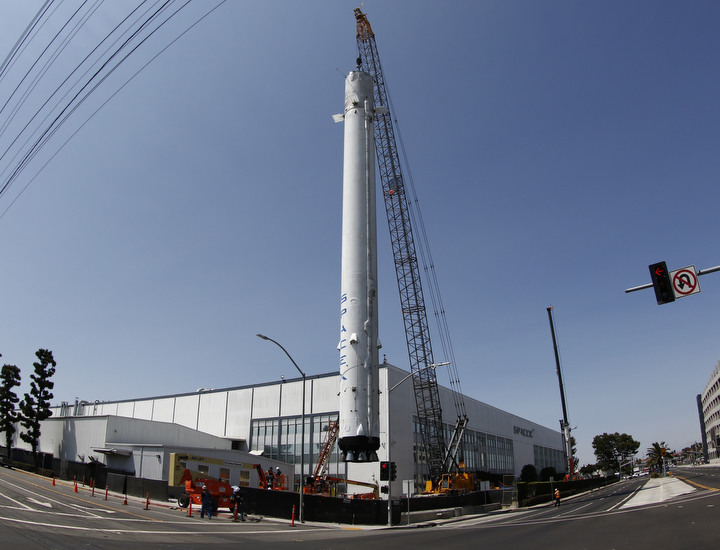
Crews outside the SpaceX’s headquarters in Southern California on Saturday positioned the booster that stuck the first Falcon 9 rocket landing for vertical display, and now the launcher is an unmistakable Space Age trophy visible to passersby on nearby streets and freeways.
Workers put the rocket near the southeast corner of SpaceX headquarters at the intersection of Crenshaw Blvd. and Jack Northrop Ave. in Hawthorne, California, a suburb of Los Angeles.
The 156-foot-tall (47-meter) rocket stage landed at Cape Canaveral after a Dec. 21 launch with 11 Orbcomm communications satellites.
It was the first launcher stage SpaceX recovered after years of effort, during which the company switched from a plan to retrieve rockets with parachutes to an outside-the-box scheme involving multiple engine restarts, landing legs, and precision landing algorithms.
The rocket stage unlatched from the Falcon 9’s second stage at an altitude of more than 250,000 feet (80 kilometers) about two-and-a-half minutes after liftoff from Cape Canaveral’s Complex 40 launch pad, then steered back to Florida’s Space Coast with the help of three rocket burns, culminating in a final maneuver to guide the booster with GPS navigation to a seaside landing target.
The touchdown marked the first time a rocket landed in such a manner after sending a satellite toward orbit. Burning leftover kerosene and liquid oxygen propellants, three of the rocket’s Merlin engines fired to reverse the first stage’s course, erasing the vehicle’s nearly 4,000 mph (6,000-kilometer per hour) downrange velocity as the booster continued to soar higher.
Then the rocket began a supersonic descent, and the trio of Merlin engines fired again for a re-entry burn. Finally, a single engine lit seconds before landing to slam on the brakes.
SpaceX chief executive Elon Musk declared shortly after the rocket landed that he planned to put it on display outside the company’s headquarters.
The placement of the booster upright required approval by the Federal Aviation Administration because SpaceX’s sprawling factory is located next to Hawthorne Municipal Airport.

After a thorough scrubbing to wash away soot residue from flying through its own exhaust, the rocket arrived in Hawthorne in June before going vertical in front of SpaceX’s main building Saturday with the help of two heavy-lifting cranes.
It joins SpaceX’s first Dragon capsule at the company’s headquarters. That spaceship, which flew into orbit in 2010, hangs inside the lobby.
Falcon 9 boosters recovered since the first one are being put to use as SpaceX strives to fly a previously-flown first stage on a satellite launch later this year. The second Falcon 9 launcher to return to Earth — landing April 8 on SpaceX’s drone ship in the Atlantic Ocean — is assigned to be the first rocket to fly a second time.
It would be the first time a space launcher’s first stage has been used twice, and would make the Falcon 9 only the second partially reusable launch vehicle in history, after the space shuttle.
SpaceX shipped another used rocket booster to its Central Texas facility for ground tests aimed at proving the Falcon 9’s first stage can survive multiple missions.
More photos of the Falcon 9 rocket going on display are posted below.
